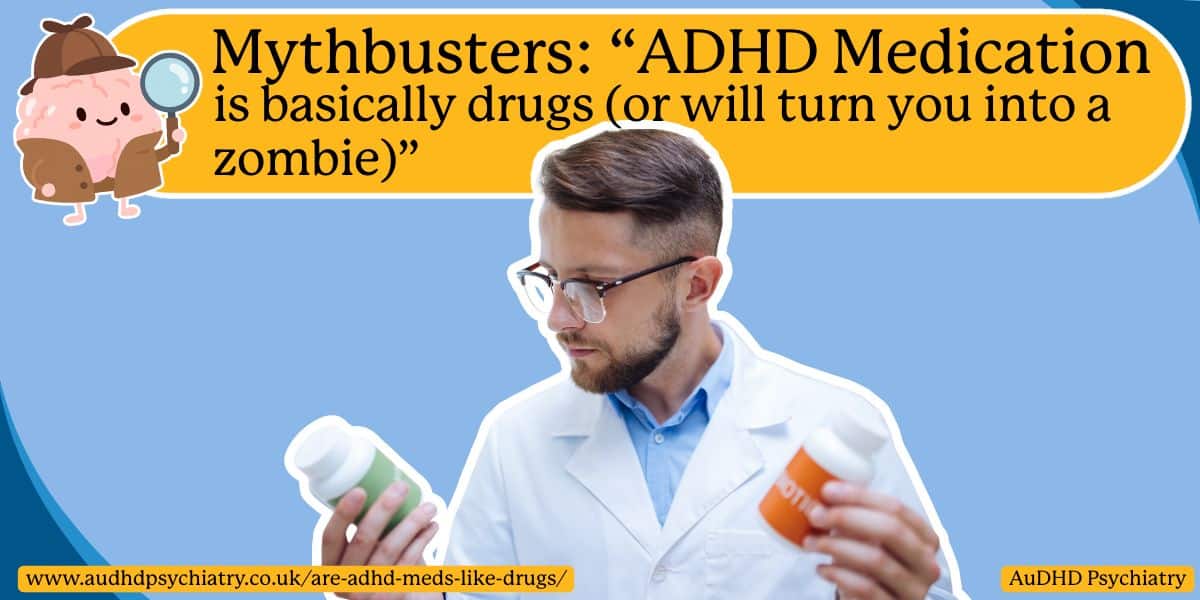
Are ADHD Meds Like Drugs?
Many people wonder, “are ADHD meds like drugs?” The comparison often comes from the fact that medications such as methylphenidate (Ritalin, Concerta) and lisdexamfetamine (Elvanse) are stimulant drugs, a category that also includes substances like cocaine or methamphetamine. This has led to stigma, fear of addiction, and the harmful belief that ADHD medication is just another form of street drug abuse.
The reality is more complex. While ADHD medications share some chemical similarities with illicit stimulants, they are carefully developed, prescribed, and monitored by qualified healthcare providers for the safe treatment of attention deficit hyperactivity disorder (ADHD). These medications work by adjusting dopamine levels and other neurotransmitters in the brain to improve focus and regulate ADHD symptoms such as inattention and hyperactivity.
In this article, we’ll break down the differences between ADHD medications and illegal drugs, examine their effects, explore safety and regulation, and tackle the misconceptions that fuel stigma.
Methylphenidate vs. Cocaine
When people ask, “is Ritalin like cocaine?” they are usually pointing to the fact that both are classified as stimulant drugs and affect the brain’s dopamine levels. While this comparison has some basis in chemistry, it overlooks critical distinctions in how these substances are used, how they act in the brain, and why one is considered an effective treatment for ADHD while the other is an illicit drug.
Why People Believe They Are the Same
The misconception partly comes from the fact that both ADHD stimulants and methamphetamine fall under Schedule II controlled substances. This category highlights that they carry some abuse potential, but it also reflects that ADHD stimulants have an accepted medical use when prescribed at safe doses. Cultural stigma, combined with media coverage of college students misusing stimulants, reinforces the false belief that prescribed ADHD drugs are “no different” from street meth.
In reality, when prescribed and supervised by qualified healthcare providers, ADHD medications remain a good choice and among the most effective treatments for ADHD They are designed to improve functioning and quality of life, not to create the uncontrolled and damaging effects associated with illicit methamphetamine. We’ll dive deeper into these comparisons.
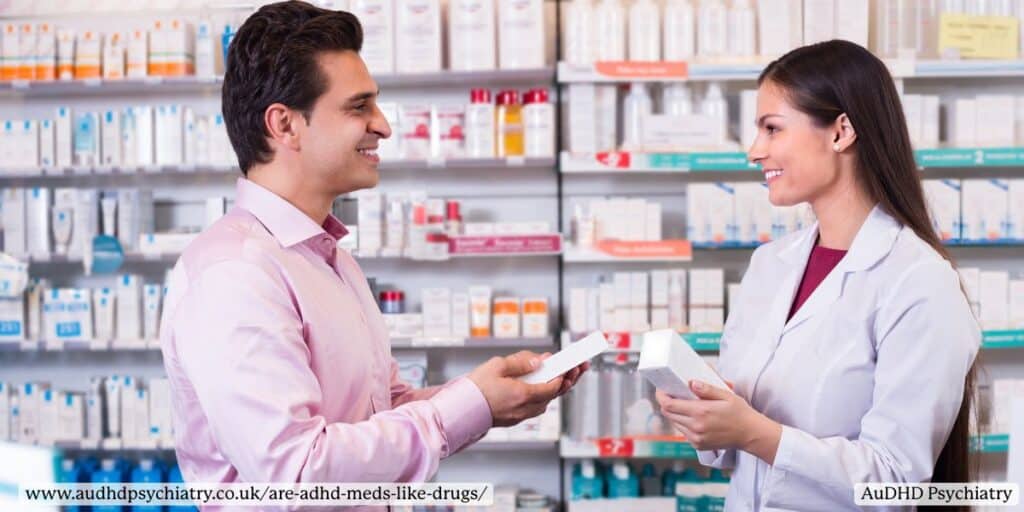
Chemical Similarities and Differences
Both methylphenidate (prescribed in the UK under brand names such as Ritalin, Concerta XL, and Equasym XL) and cocaine influence dopamine pathways in the central nervous system. They block dopamine transporters, which increases dopamine availability in the brain. However, the chemical structure and methyl group arrangement differ, creating distinct effects. Cocaine floods brain cells rapidly, producing intense euphoria, while methylphenidate works in a more controlled manner to enhance focus and attention.
Medical vs. Recreational Context
The context of drug administration is crucial. Methylphenidate is a regulated prescription medication, provided at carefully measured doses, often in extended-release medication form to ensure stable effects throughout the day. Cocaine, by contrast, is used recreationally in uncontrolled amounts, often at higher doses that sharply raise heart rate and blood pressure, leading to serious side effects and a higher risk of addiction or overdose.
Why This Distinction Matters
Comparing methylphenidate to cocaine without context creates stigma around ADHD drugs. In reality, the controlled use of stimulant medicines such as methylphenidate by qualified healthcare providers improves cognitive performance, supports executive function, and helps manage symptoms of attention deficit hyperactivity disorder safely.
Are Methylphenidate and Cocaine Alike?
It is true that methylphenidate and cocaine both act on dopamine transporters, which is why the comparison often arises. Both substances increase dopamine levels in the brain, but the outcome, dosage, and intent of use are completely different. Understanding these distinctions is essential to moving past the myth that ADHD medicines are “just like drugs” and to separating clinical treatment from recreational abuse.
Short-Term Effects: Focus Vs. Euphoria
- Methylphenidate (Ritalin, Concerta XL, Equasym XL) – improves sustained attention, working memory, and impulse control. Under medical supervision, it enables patients to manage ADHD symptoms, such as inattention and hyperactivity, more effectively.
- Cocaine – produces a rapid and intense euphoric “high.” Rather than supporting cognitive performance, it disrupts normal functioning and can trigger anxiety, paranoia, or agitation.
While the active ingredient in methylphenidate influences dopamine levels, the effect is moderated by drug administration, with small, therapeutic doses prescribed by healthcare providers. Cocaine, by contrast, is taken in uncontrolled amounts, often by snorting or injecting, which causes sudden spikes in dopamine and puts individuals at higher risk of addiction.
Duration and Method of Use
- Methylphenidate – available in immediate- and extended-release medication forms. Extended-release versions provide steady benefits across school or work hours, making them a good option for long-term symptom control.
- Cocaine – short-lived impact, often only minutes. This brevity encourages repeated use, creating cycles of “crash and craving” that contribute to substance use disorders.
These differences illustrate why methylphenidate is a safe prescription drug when taken as directed, while cocaine is classified as an illicit drug with severe health risks.
Why Context Matters
Confusing prescribed stimulant medicines with illegal drugs fuels unnecessary stigma. Attention deficit hyperactivity disorder is a recognised mental health condition that requires structured treatment, not blame or fear. With qualified healthcare providers monitoring dosage, side effects, and long-term impact, stimulant medicines remain one of the most effective treatment options available.
For individuals considering support, the first step is usually an ADHD assessment, which helps determine the right medication or alternative therapies. AuDHD Psychiatry’s professional guidance ensures patients make an informed decision and benefit safely from treatment. If you’re looking to get a comprehensive evaluation, you can also get a BUPA autism diagnosis to explore the best treatment options available to you.
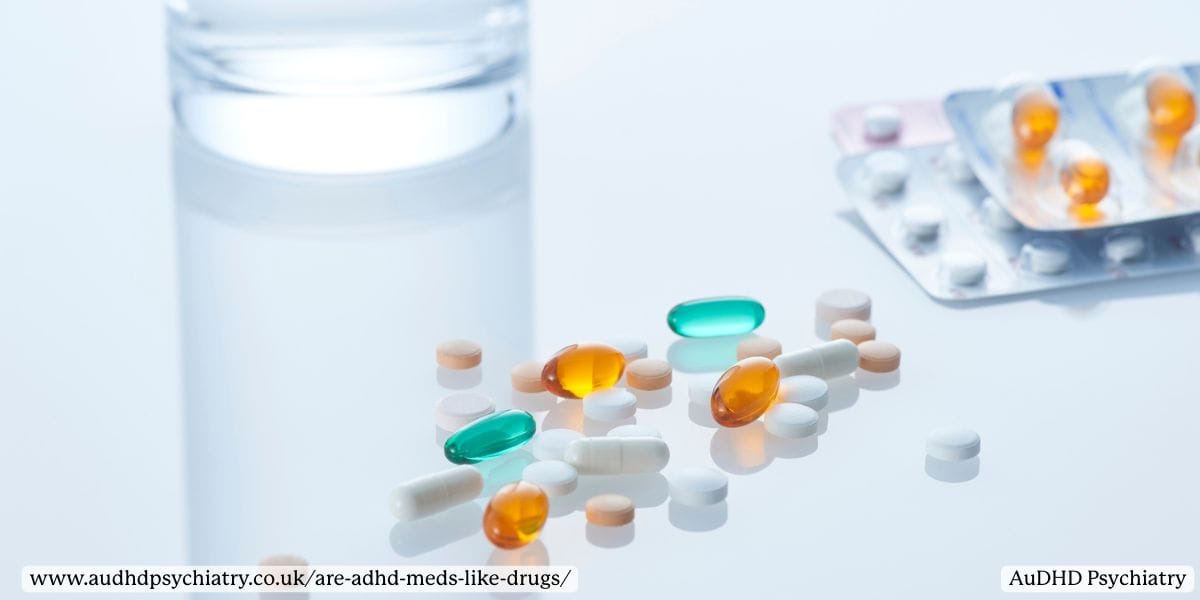
Is Methylphenidate Safer than Cocaine?
The comparison between methylphenidate and cocaine often sparks concern, particularly because both influence dopamine in the brain. While their chemical structure shows some overlap, the safety profile, method of use, and medical oversight are worlds apart. One is a carefully controlled prescription medication for the treatment of ADHD, the other an illicit drug associated with dependency and long-term harm.
Medical Oversight and Dosage Control
When prescribed as an ADHD medication, methylphenidate is given in precisely measured doses. Before starting treatment, qualified healthcare providers typically conduct:
- Medical history checks – looking at family history of heart problems, mood disorders, or substance use disorders.
- Physical exams and blood tests – to assess general health and reduce the risk of adverse effects.
- Monitoring over time – adjusting dosage, switching to extended-release medication, or exploring non-stimulant medications if needed.
This level of supervision ensures that stimulant drugs remain a good choice for many patients, balancing benefits against possible side effects.
Cocaine, on the other hand, is consumed without regulation or quality control. Purity varies, doses are uncontrolled, and the risk of overdose is high. Users often experience dangerous spikes in heart rate and blood pressure, greatly increasing the chance of cardiovascular emergencies.
Addiction Potential vs. Controlled Safety
Both cocaine and stimulant medicines influence dopamine levels, but the context determines the outcome.
- Cocaine – floods the brain with dopamine, causing intense euphoria and reinforcing addictive behaviours. Regular use quickly escalates to dependency and serious side effects.
- Methylphenidate – acts more gradually, particularly in long-acting dose formulations. This reduces the risk of misuse and makes it one of the most effective treatments for attention deficit hyperactivity disorder.
Although methylphenidate is classified as a Schedule II controlled substance due to its abuse potential, this classification reflects the need for regulation, not evidence of inherent danger when used correctly. Under professional supervision, stimulant medicines have a strong safety record.
Why Medical Use Matters
Clinical trials and decades of research confirm that stimulant drugs such as methylphenidate reduce ADHD symptoms, enhance executive function, and improve quality of life for patients. Common but manageable side effects include:
- Loss of appetite and weight loss
- Difficulty sleeping or insomnia
- Mild irritability or mood changes
These effects are closely monitored by a health care provider, who can adapt the treatment plan as needed. By contrast, cocaine use leads to uncontrolled stimulation, dependency, and long-term adverse effects such as cardiovascular damage and cognitive decline.
While both substances act on dopamine, the distinct differences in administration, oversight, and purpose make methylphenidate far safer than cocaine. For patients who may resonate with ADHD traits but have not been diagnosed, the first step is often an ADHD assessment. This allows medical professionals to evaluate risks, outline treatment options, and recommend the best medication for each individual.
Aren’t Medications for ADHD Just Different Versions of Illegal Drugs?
One of the most persistent myths is that ADHD drugs are little more than disguised versions of illegal drugs. This misconception fuels stigma, leading some patients to avoid seeking treatment for ADHD even when they could greatly benefit from support. While stimulant medicines do share certain pharmacological properties with substances such as cocaine or methamphetamine, the similarities stop at the basic chemistry.
In practice, the way they are developed, prescribed, and monitored creates distinct differences that separate evidence-based treatment from illicit use.
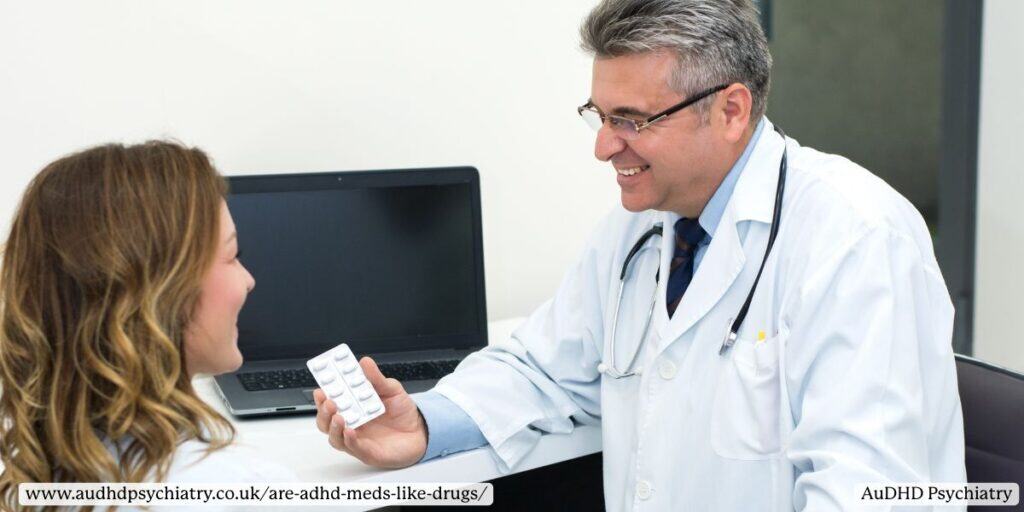
Controlled Substances and Regulation
In the UK, methylphenidate and other stimulant drugs used for the treatment of ADHD are categorised as Schedule II controlled substances. This designation highlights that they carry some abuse potential, but it also places them under strict regulatory safeguards. These include:
- Prescriptions that can only be issued by qualified healthcare providers.
- Careful drug administration and follow-up by medical professionals.
- Adjustments in formulation,such as extended-release medication, to reduce bothersome side effects and maintain steady therapeutic benefit.
- Regular reviews of dosage to ensure safety and sustain improvements in quality of life.
By contrast, illicit drug use bypasses all of these safeguards. Street drugs are consumed in unregulated amounts, often at higher doses with unpredictable purity. This exposes users to serious risks, including cardiovascular strain, heart problems, and long-term damage to brain cells.
Medical Use vs Nonmedical Use
When prescribed for ADHD, stimulant medicines are intended to target dopamine transporters in a measured and consistent way. The goal is to balance levels of chemicals in the brain to:
- Improve focus and sustained attention.
- Support working memory and executive function.
- Reduce the core symptoms of ADHD, such as inattention, hyperactivity, and impulsivity.
Nonmedical use tells a different story. Misusing methylphenidate, for example taking higher doses than prescribed, or using it for short-term euphoria can trigger:
- Immediate but unstable dopamine surges.
- Severe side effects include cardiovascular strain, anxiety, or even substance use disorders.
- An increased risk of addiction and lasting psychiatric complications.
Stigma and Misunderstanding
Much of the confusion comes from the shared category of “stimulant.” Hearing that both cocaine and methylphenidate are stimulants can make it sound as though they work in similar ways. In reality, one is a prescription drug developed to help people manage a recognised mental health condition, while the other is an illicit drug taken for recreational purposes with no medical oversight. Articles such as Professional vs. Self-Diagnosis underline how crucial medical evaluation is for ensuring that patients receive the right medication and the safest, most effective treatment strategies.
Ultimately, ADHD stimulants are not “different versions” of street drugs. They are prescription medications backed by decades of clinical research, and when used correctly under medical supervision, they remain among the most effective treatments for ADHD available today.
Is Lisdexamfetamine (Elvanse) Safe?
When prescribed and monitored by medical professionals, lisdexamfetamine (Elvanse) is considered safe and effective for many people with attention deficit hyperactivity disorder. As one of the most commonly prescribed stimulant medications in the UK, it helps to:
- Regulate dopamine levels and norepinephrine activity in the brain.
- Improve focus and attention across daily tasks.
- Reduce impulsivity and support executive function and overall cognitive performance.
Why Lisdexamfetamine Is a Controlled Substance
Like other stimulant drugs, lisdexamfetamine carries potential risks. It is classified as a Schedule II controlled substance, meaning it has clear medical benefits but also requires careful regulation to prevent misuse.
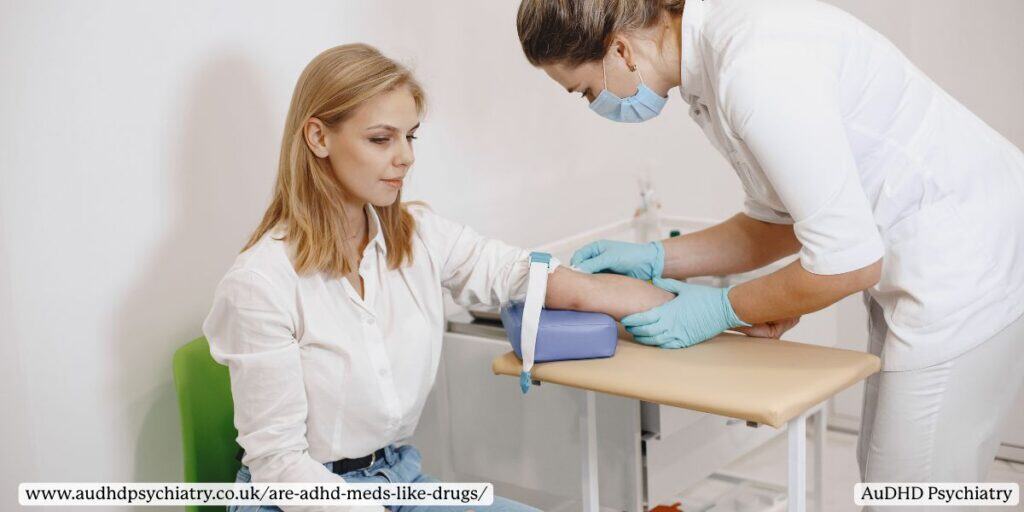
The Role of Medical Oversight
The safety of lisdexamfetamine depends on proper medical supervision. Before prescribing, clinicians often carry out:
- Blood tests to assess overall health.
- A review of family history, including risks of heart conditions or mood disorders.
- Screening for underlying cardiac issues, bipolar disorder, or other mental health conditions that could interact with stimulant use.
UK guidance also stresses that patients with a heart condition or those at higher cardiovascular risk should undergo thorough evaluation before starting stimulant medicines. Regular check-ups help ensure the right medication and dosage remain a good option for each individual.
Is There a Safe Dosage of Methamphetamine to Replace ADHD Medications?
One of the most persistent misconceptions in ADHD treatment is the idea that methamphetamine might be prescribed as an alternative to standard ADHD medication. In reality, methamphetamine is widely known as an illicit drug; it is not approved or available in the UK for the treatment of ADHD.
Why Methamphetamine Is Not a Treatment for ADHD
Methamphetamine has a much higher risk profile than approved ADHD medications. At higher doses, it can cause:
- Severe cardiovascular effects, including hypertension, arrhythmia, and heart problems.
- Neurotoxicity, damaging brain cells and impairing long-term brain function.
- Worsening of underlying mental health conditions, such as anxiety disorder, mood disorders, or psychosis.
- A very high potential for substance use disorders and addiction.
Because of these risks, methamphetamine is not considered a good choice for ADHD treatment and is not included in any clinical guidelines across the UK.
Safer and Effective Alternatives
UK treatment strategies focus on safer and evidence-based options:
Stimulants for ADHD (first-line):
- Methylphenidate (e.g., Ritalin, Concerta) — available in immediate and extended-release medication forms.
- Lisdexamfetamine (Elvanse) — a long-acting dose option, often used when methylphenidate is not effective.
Non-stimulant medications (when stimulants are unsuitable):
- Atomoxetine.
- Guanfacine.
- Clonidine (sometimes used off-label under medical supervision)
These medicines are carefully titrated and monitored by qualified healthcare providers to balance therapeutic benefit with possible side effects.
Looking Ahead
Current clinical trials and future research are directed towards developing safer stimulant medicines with fewer adverse effects, as well as refining treatment strategies that combine medication with behaviour therapy and lifestyle interventions.
The Bottom Line
Methamphetamine is not a recognised ADHD medication in the UK. Instead, approved stimulants and non-stimulants remain the most effective treatment options for managing the symptoms of ADHD when prescribed by experienced medical professionals.
For safe, expert-led treatment, see Top Private ADHD Assessment Services to explore evidence-based options with trusted specialists.
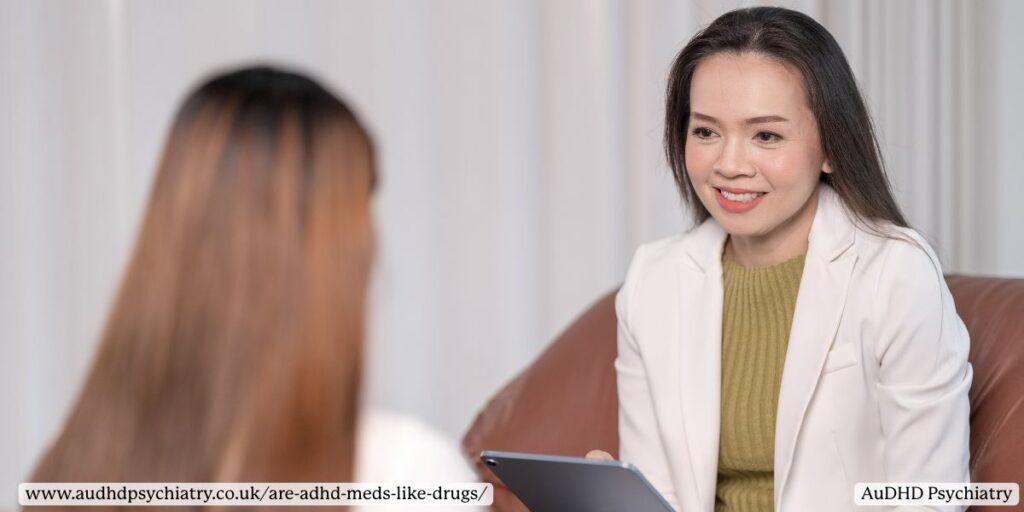
Getting Support for Severe ADHD
Not every patient responds fully to ADHD medication alone. Severe cases of ADHD often require a blend of medical and non-medical strategies, beginning with a professional ADHD assessment to understand both core symptoms and related challenges. Our approach is designed to support you in understanding the ADHD diagnosis journey and choosing the right next steps. For those ready to move forward, you can start your treatment with guidance from qualified professionals who ensure safety and effectiveness.
Beyond Prescription Medications
For many adults, especially those with complex needs, the treatment of ADHD goes beyond stimulant medicines. Options include:
- Therapy and coaching – Behaviour therapy and ADHD coaching help patients build structure, manage time, and strengthen executive function.
- Lifestyle changes – Regular exercise, structured routines, and adequate sleep can improve brain function and reduce symptoms of ADHD.
- Support systems – Input from family members and child’s teachers can reinforce positive behaviours and accountability.
When Medication Isn’t Enough
Some patients may not tolerate stimulant drugs due to serious side effects such as high blood pressure, increased heart rate, or insomnia. Others may have co-existing conditions like an anxiety disorder, bipolar disorder, or substance use disorders, which complicate stimulant use. In these cases, non-stimulant medications (atomoxetine, guanfacine, clonidine) can be a good choice, providing symptom relief without the same abuse potential.
Practical Support Pathways
Alongside medical interventions, practical support can make a big difference. An online adult autism assessment can also help identify overlapping challenges and guide more tailored support plans. Workplace accommodations via Access to Work ADHD Support give employees tools to manage focus and productivity. AuDHD Psychiatry’s ADHD coaching services help patients create systems that improve daily functioning. Structured therapy sessions can address co-existing issues such as alcohol abuse or mood instability.
Conclusion: Are ADHD Meds Like Drugs?
The question “are ADHD meds like drugs?” reflects a common misconception. While stimulants such as methylphenidate and lisdexamfetamine share some properties with substances like cocaine, the difference lies in regulation, dosage, and medical oversight. ADHD medications are carefully prescribed prescription drugs, designed to improve focus, reduce impulsivity, and support daily functioning.
With proper monitoring, side effects can be managed, and treatment may also include non-stimulant medications, therapy, or coaching. Far from being “just drugs,” ADHD stimulants are among the most effective treatments for attention deficit hyperactivity disorder.
If you’re seeking clarity, the first step is assessment. Book your ADHD evaluation with AuDHD Psychiatry and access safe, effective treatment tailored to meet your unique needs.
You Might Also Like
Contact Us
We’re here to answer any questions you might have.
Get in Touch
Opening Hours
Contact Form
We’re here to help. Reach out and we’ll get back to you within 24 hours (Monday – Friday).

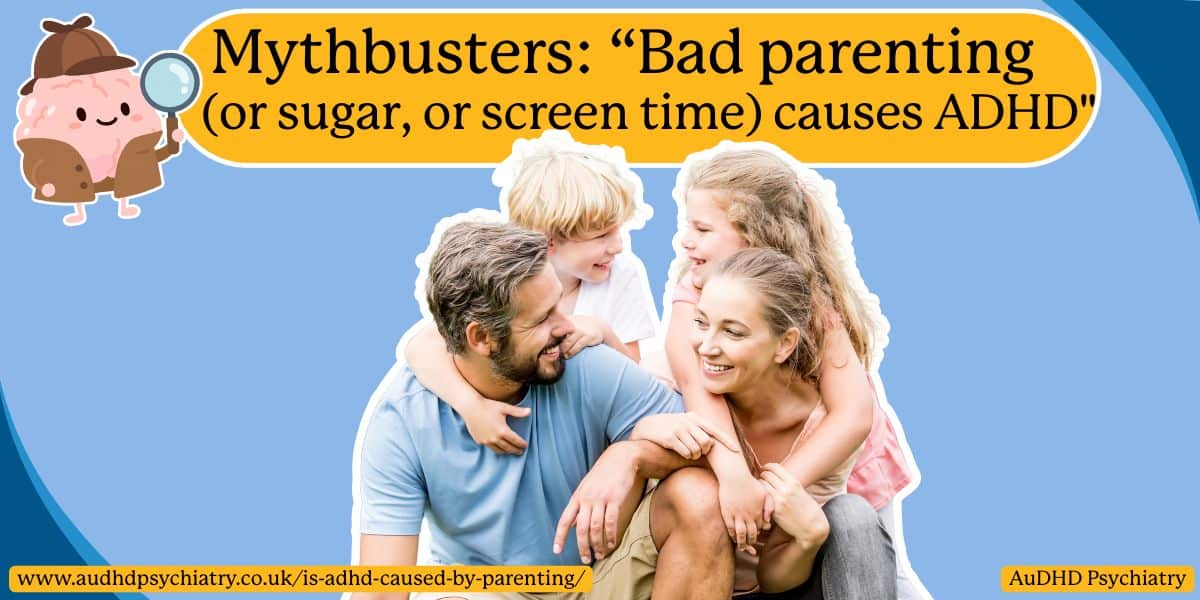
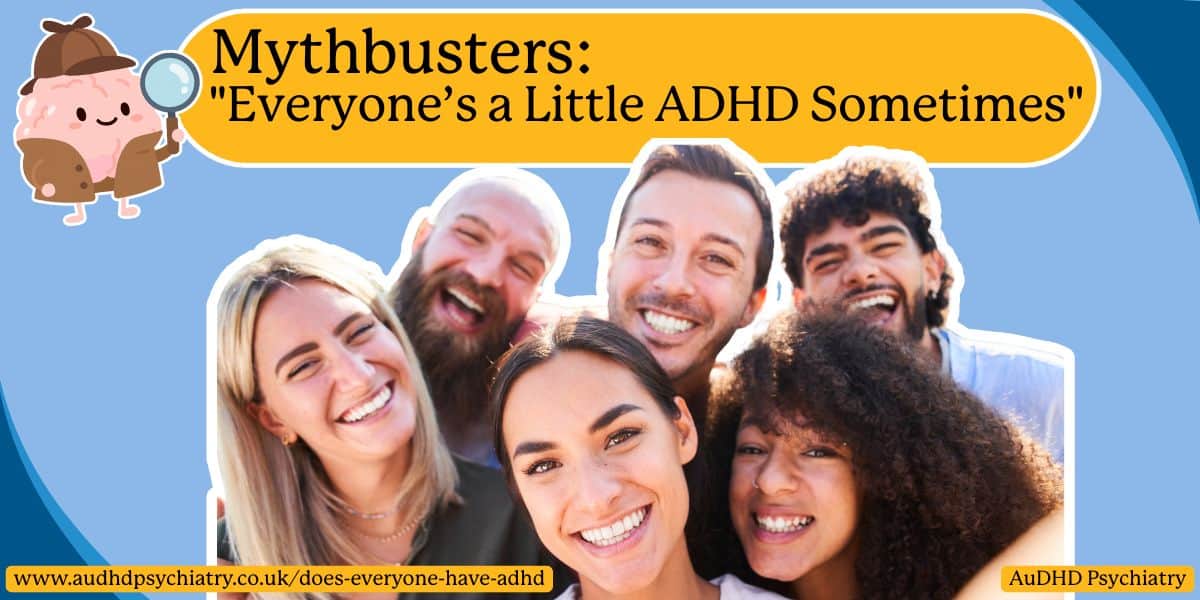
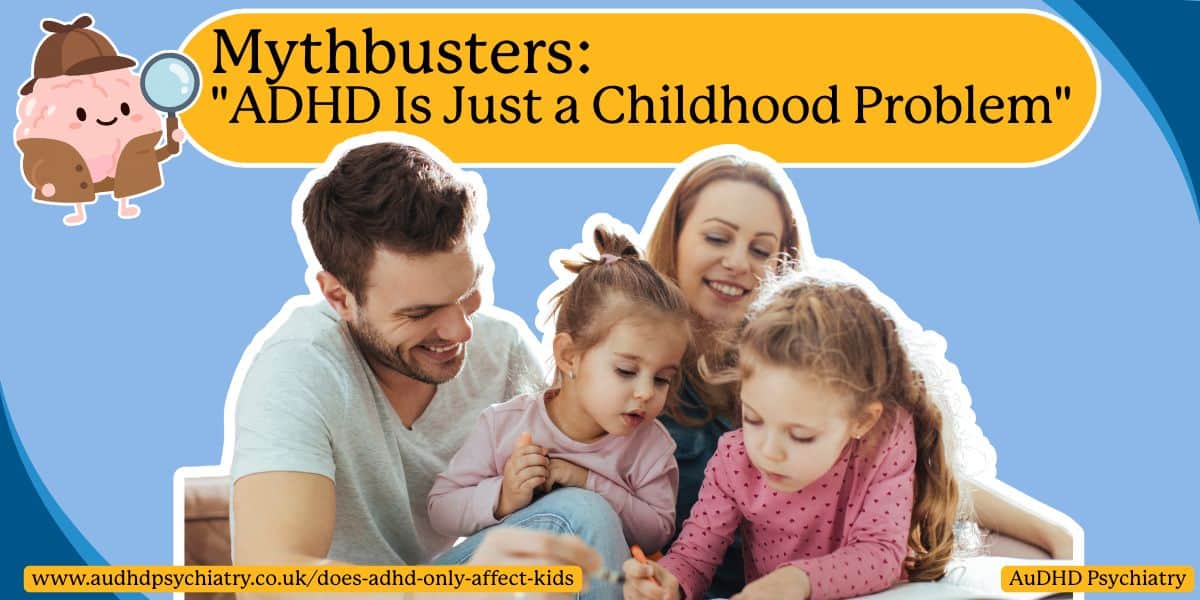
Leave a Reply